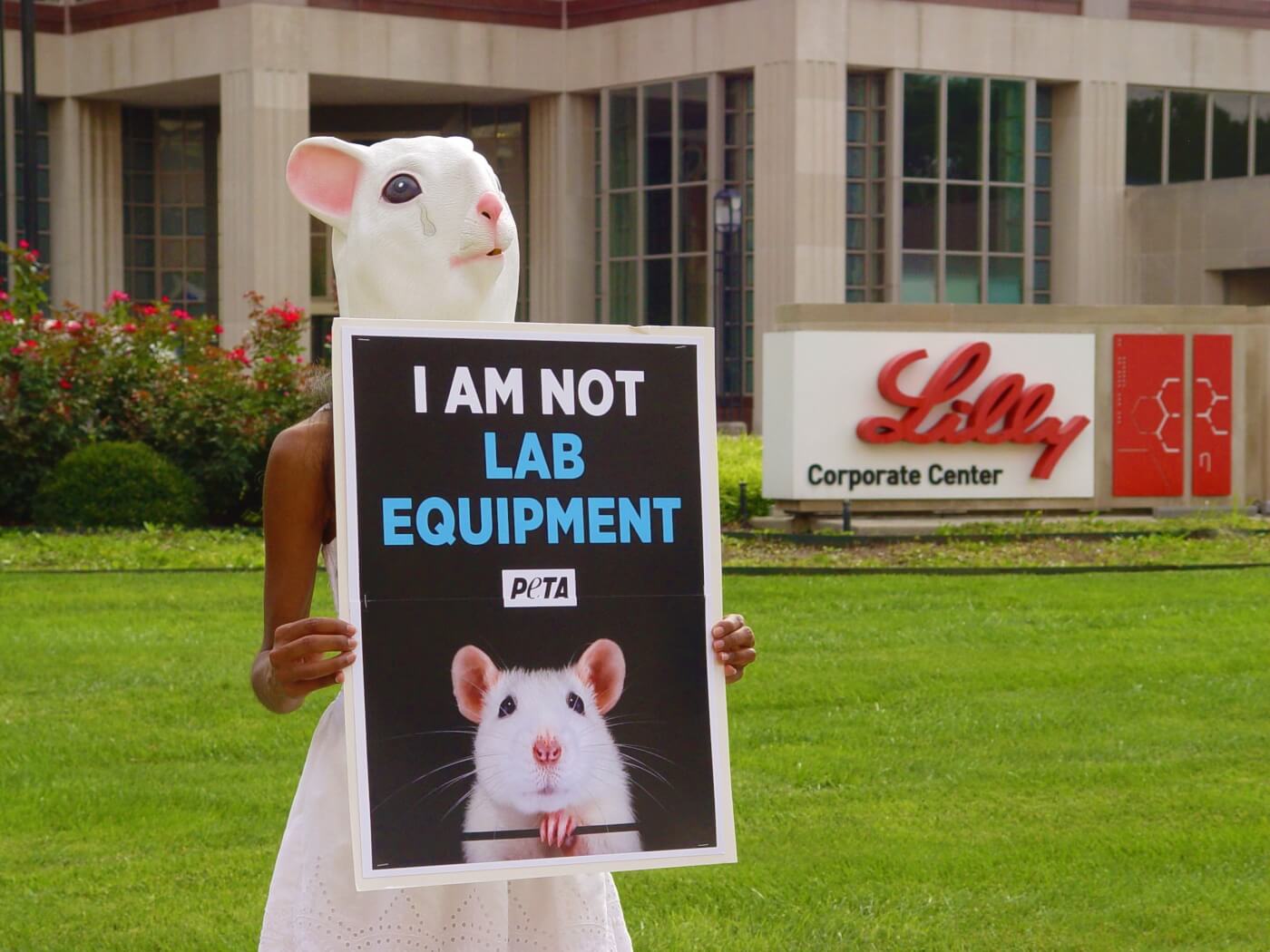Empathy Over Experimentation: The Case Against the Term ‘Lab Rat’
Are you using derogatory phrases about our fellow animals? If you use the term “guinea pig” or “lab rat” to imply someone is a test subject, you may be using speciesist language unwittingly and promoting tests on animals. This language denies otherwise caring humans the opportunity to see every animal as someone.

Enable Compassion—Ditch the ‘Lab Rat’ Figure of Speech
Each rat is an individual with a unique personality and many remarkable traits. Five of their fascinating characteristics are discussed below.
- Relationships: Rats become emotionally attached, love their families, and bond easily with their human guardians. They’re loyal and devoted companions.
- Communication: Rats speak to each other in squeaks and high-frequency sounds that are inaudible to the human ear. Infant rats even giggle when they’re tickled.
- Memory and recognition: Rats have excellent memories—once they learn a route, they never forget it. They can recognize their names and respond when called.
- Empathy: Rats express empathy when someone they know is in distress. During deadly tests, they’ve been known to prevent other rats from suffering, even when they don’t know each other and must share food.
- Intelligence and imagination: Rats are natural students who excel at learning and understanding concepts. They create mental maps of their environment and can even control them by imagining places different from their location. Rats also dream in pictures.
Rats are one of experimenters’ favorite victims because they’re small and inexpensive, but testing on rats is ineffective, cruel, and archaic. Such experiments are deadly for animals and delay the discovery of treatments and cures for humans.
Why the Term ‘Lab Rat’ Is So Pervasive
Out of all animals used in U.S. laboratories, 95% are rats and mice. Despite this fact, the ones in labs aren’t even afforded the meager protections of the federal Animal Welfare Act (AWA).

Rats used in experiments often receive little or no pain relief or veterinary care. Experimenters often leave sick ones to die slowly in tiny cages.
No test on rats is illegal, regardless of how torturous or deadly it is for them. In egregious experiments on rats exposed by PETA, experimenters have cut or drilled into animals’ heads, forced them to swim until they nearly drowned, or slammed heavy weights into their skulls in a futile attempt to measure the impact of football injuries in humans.
Because rats are excluded from the AWA, vivisectors are not required to track the number of them in labs, further denying these animals their individuality. It’s estimated that more than 111 million mice and rats are killed in U.S. labs each year.

Rats can experience pain, fear, loneliness, and joy—just like humans—and no figure of speech based on human supremacy should limit or endanger their lives, especially when advanced, relevant, and effective animal-free testing methods exist.
Take Action for Rats Exploited in Labs
Help end the use of rats in experiments by urging your legislators to support PETA’s Research Modernization Deal (RMD).
U.S. residents only, take action below:
If you do not live in the U.S., help rats below:

